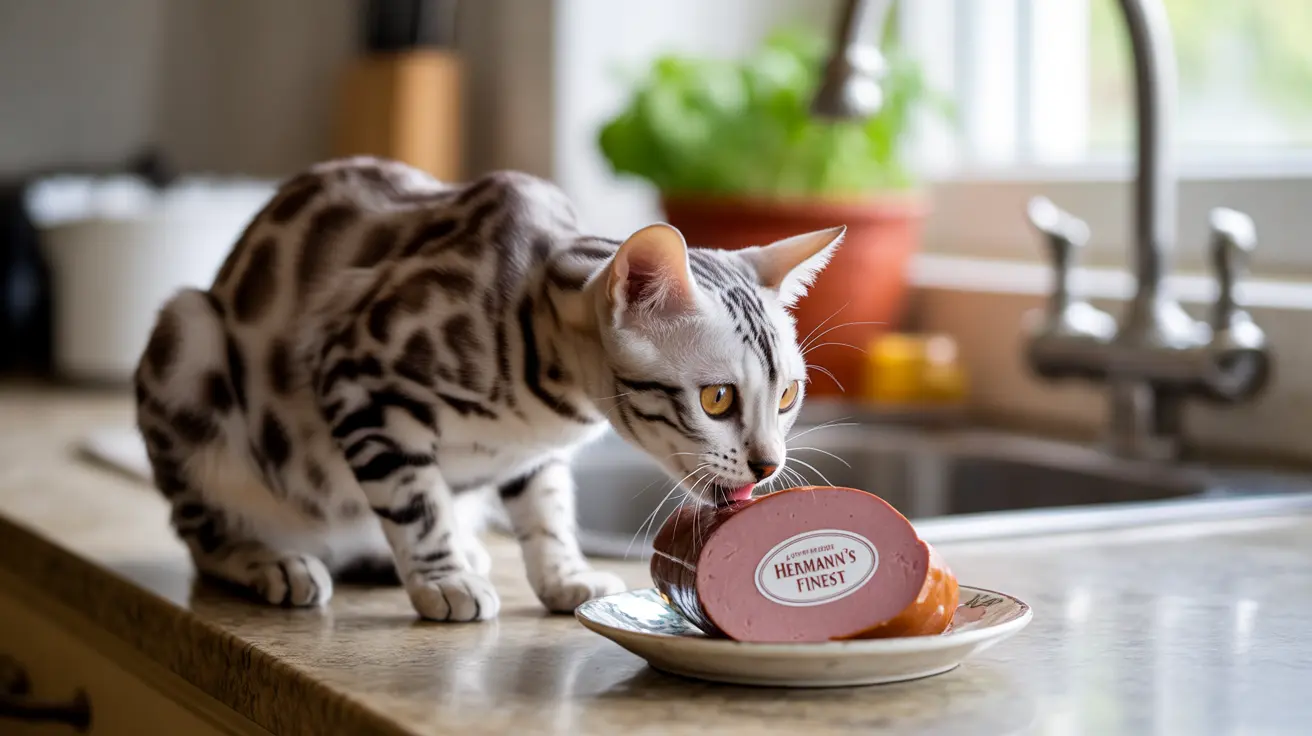If you've ever wondered whether sharing liverwurst with your feline friend is safe, you're not alone. While cats might show interest in this German-style sausage, veterinary experts caution against feeding liverwurst to cats due to several health and safety concerns.
Understanding the risks and potential dangers of feeding liverwurst to cats is crucial for responsible pet ownership. Let's explore why this processed meat product isn't suitable for your feline companion and what alternatives you should consider instead.
The Composition of Liverwurst and Its Effects on Cats
Liverwurst is a processed meat product primarily made from liver and other organ meats, combined with various seasonings and preservatives. While liver itself can be nutritious, the processed nature of liverwurst introduces several concerns for feline health.
The high fat content and added seasonings in liverwurst make it particularly problematic for cats. A single serving can contain excessive amounts of sodium, preservatives, and potentially toxic ingredients like onion or garlic powder.
Key Health Risks of Feeding Liverwurst to Cats
Dangerous Ingredients and Additives
Many commercial liverwurst products contain ingredients that are toxic to cats, including:
- Onion and garlic powder (can cause anemia)
- High sodium levels (risk of salt poisoning)
- Spices and seasonings (potential digestive issues)
- Preservatives (can cause adverse reactions)
Nutritional Imbalances
Despite containing some beneficial nutrients, liverwurst's nutritional profile is problematic for cats:
- Too high in fat
- Excessive Vitamin A content (risk of toxicity)
- Imbalanced protein-to-fat ratio
- High caloric density
Safe Alternatives to Liverwurst for Cats
Instead of liverwurst, consider these veterinarian-approved treats for your cat:
- Commercial cat treats formulated for feline nutrition
- Small pieces of plain, cooked chicken or turkey
- Modest amounts of fresh, unseasoned liver (occasional treat only)
- Specially formulated cat-specific liver treats
When to Contact Your Veterinarian
If your cat has consumed liverwurst, watch for these warning signs:
- Vomiting or diarrhea
- Lethargy or weakness
- Excessive thirst
- Unusual behavior or loss of appetite
Frequently Asked Questions
Can cats safely eat liverwurst, and what are the risks involved?
No, cats should not eat liverwurst regularly. The risks include salt poisoning, vitamin A toxicity, and potential reactions to toxic ingredients like onion powder. While small amounts might not cause immediate harm, it's best to avoid feeding liverwurst to cats entirely.
What ingredients in liverwurst make it harmful to cats?
Harmful ingredients include high sodium levels, onion and garlic powders, various spices, and preservatives. These components can cause anything from digestive upset to serious conditions like anemia or salt toxicity.
What symptoms should I watch for if my cat eats liverwurst?
Monitor for vomiting, diarrhea, lethargy, excessive thirst, pale gums, and changes in behavior or appetite. If you notice any of these symptoms, contact your veterinarian immediately.
How does liverwurst compare nutritionally to fresh liver or cat-specific treats?
While fresh liver can be a healthy occasional treat in small amounts, liverwurst is highly processed with added fats, salts, and seasonings that make it unsuitable for cats. Cat-specific treats are specially formulated to meet feline nutritional needs safely.
What are safer treat alternatives to liverwurst for cats?
Safe alternatives include commercial cat treats, small pieces of plain cooked meat, specialized cat liver treats, and occasional small amounts of fresh, unseasoned liver. Always choose treats specifically formulated for feline consumption.
Conclusion
While liverwurst might seem like a tempting treat for your cat, the risks far outweigh any potential benefits. Stick to veterinarian-approved treats and foods specifically formulated for feline nutrition to ensure your cat's health and safety. When in doubt, always consult with your veterinarian about appropriate treats for your feline friend.






